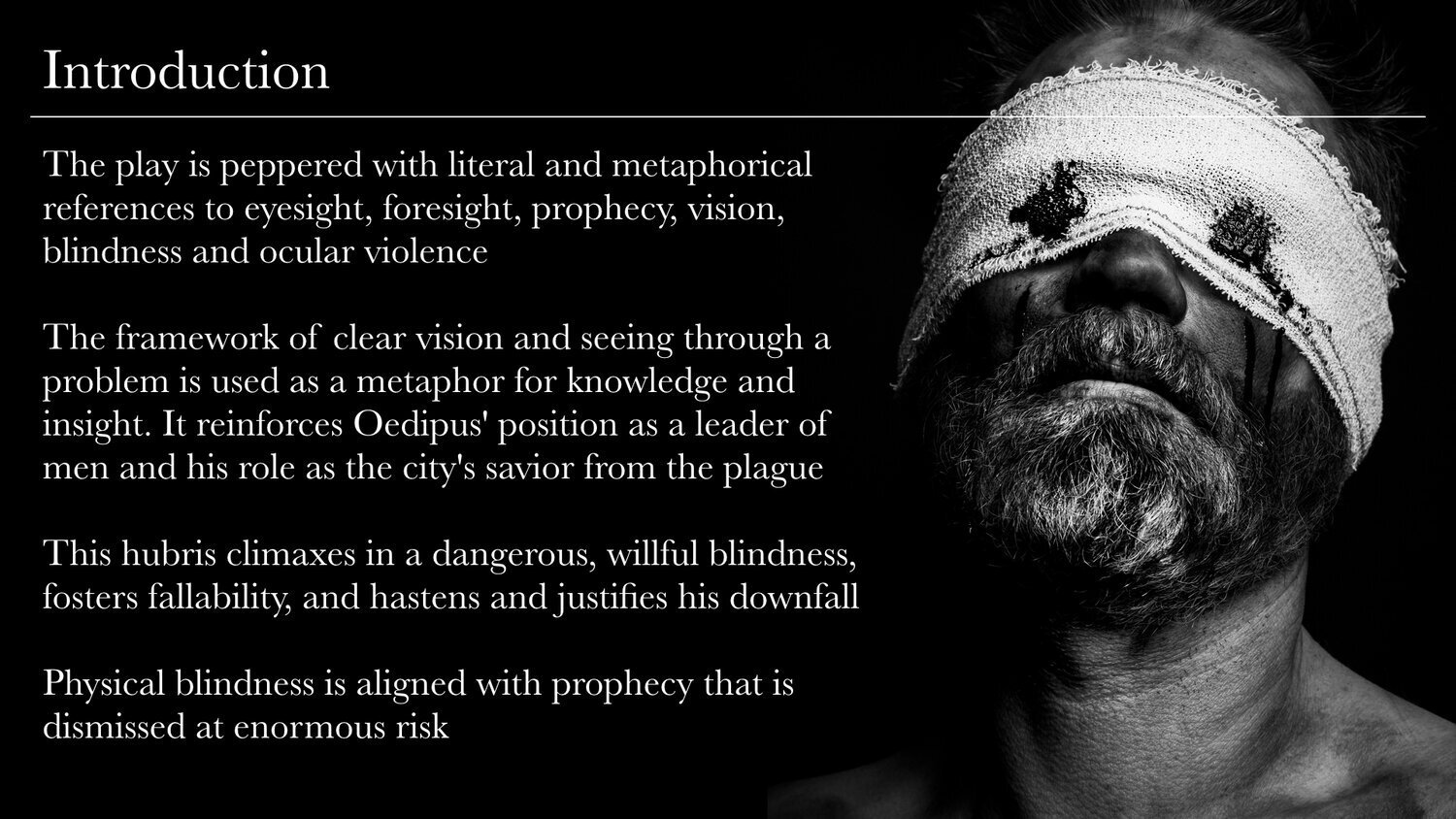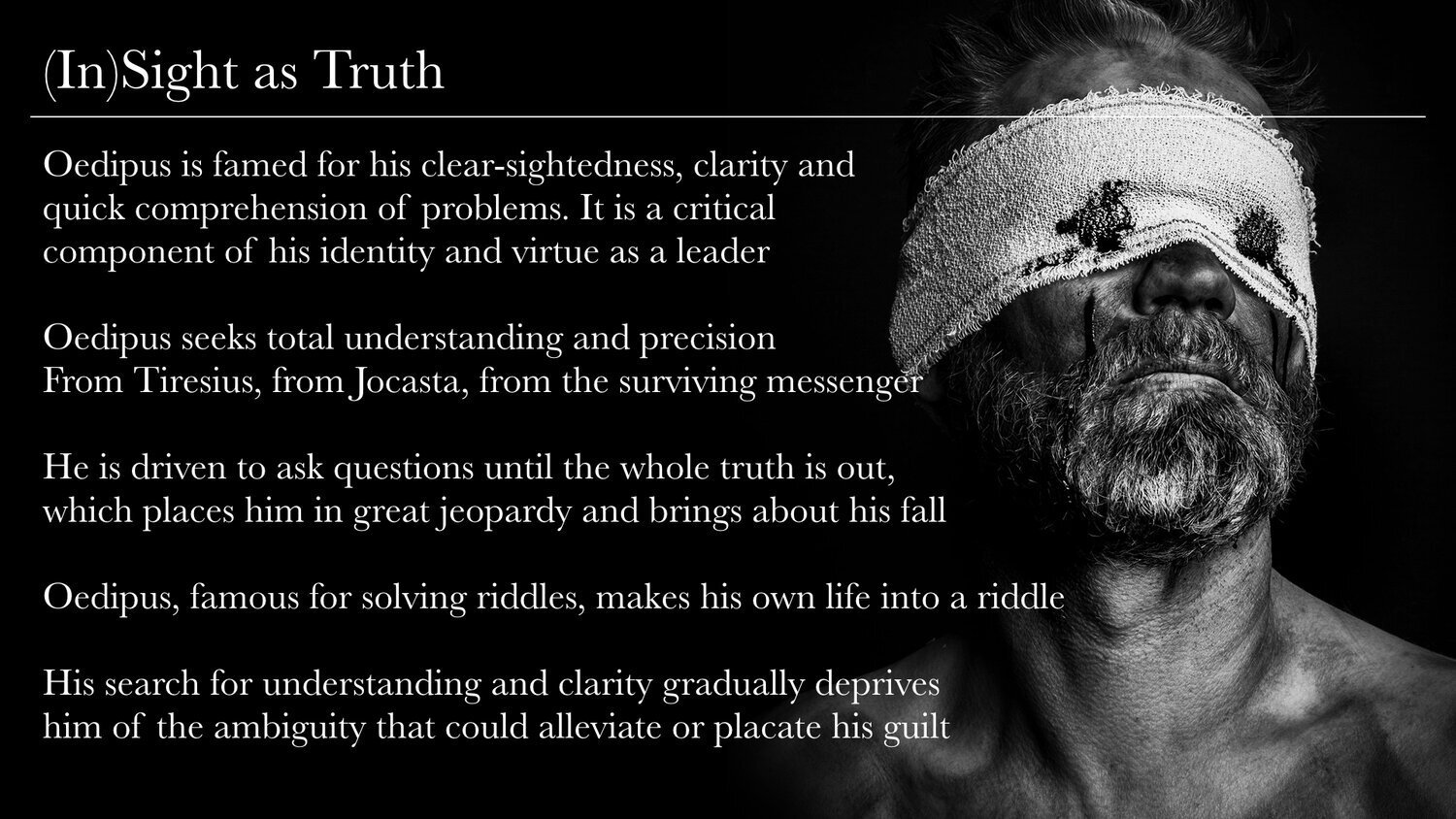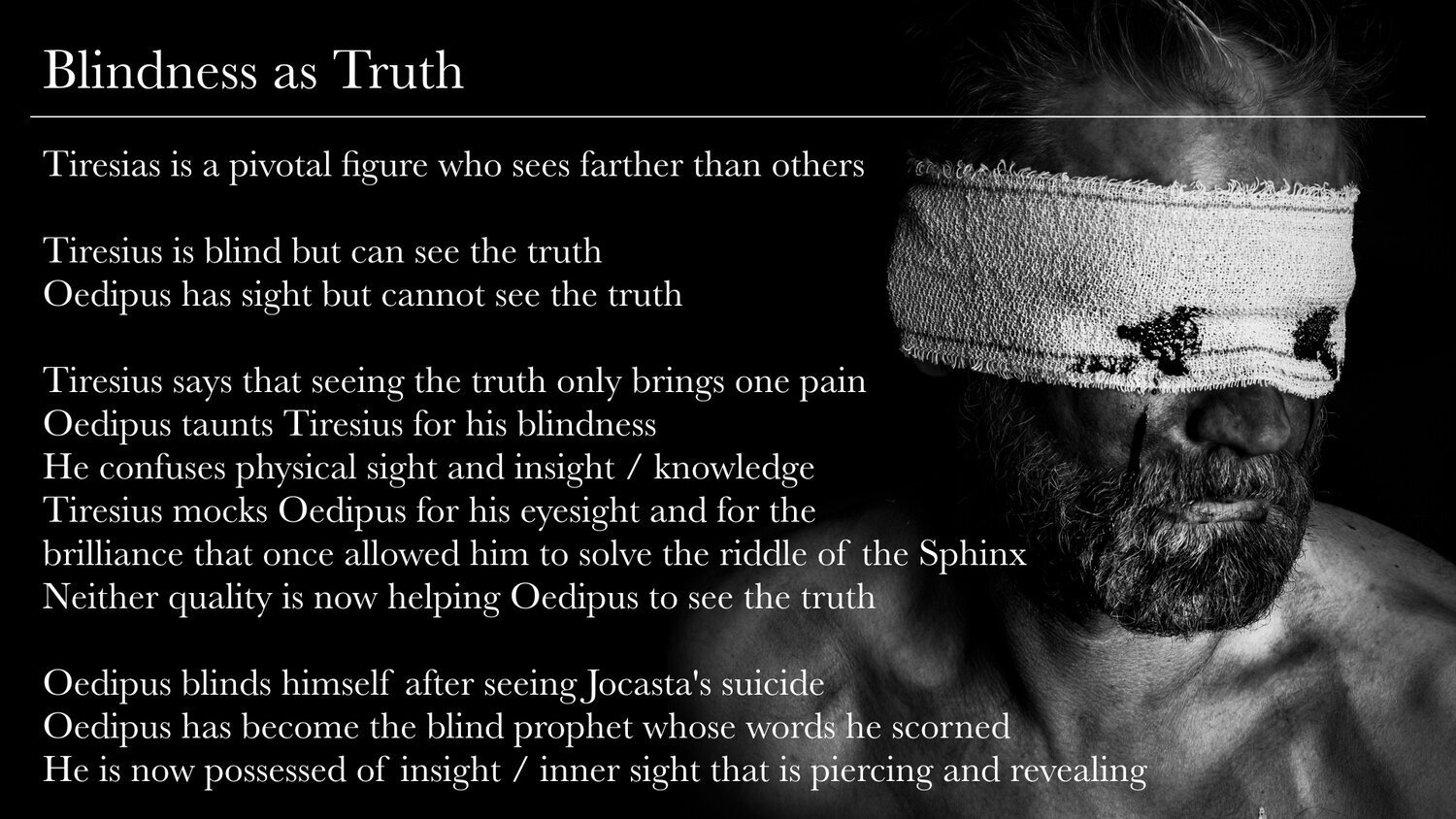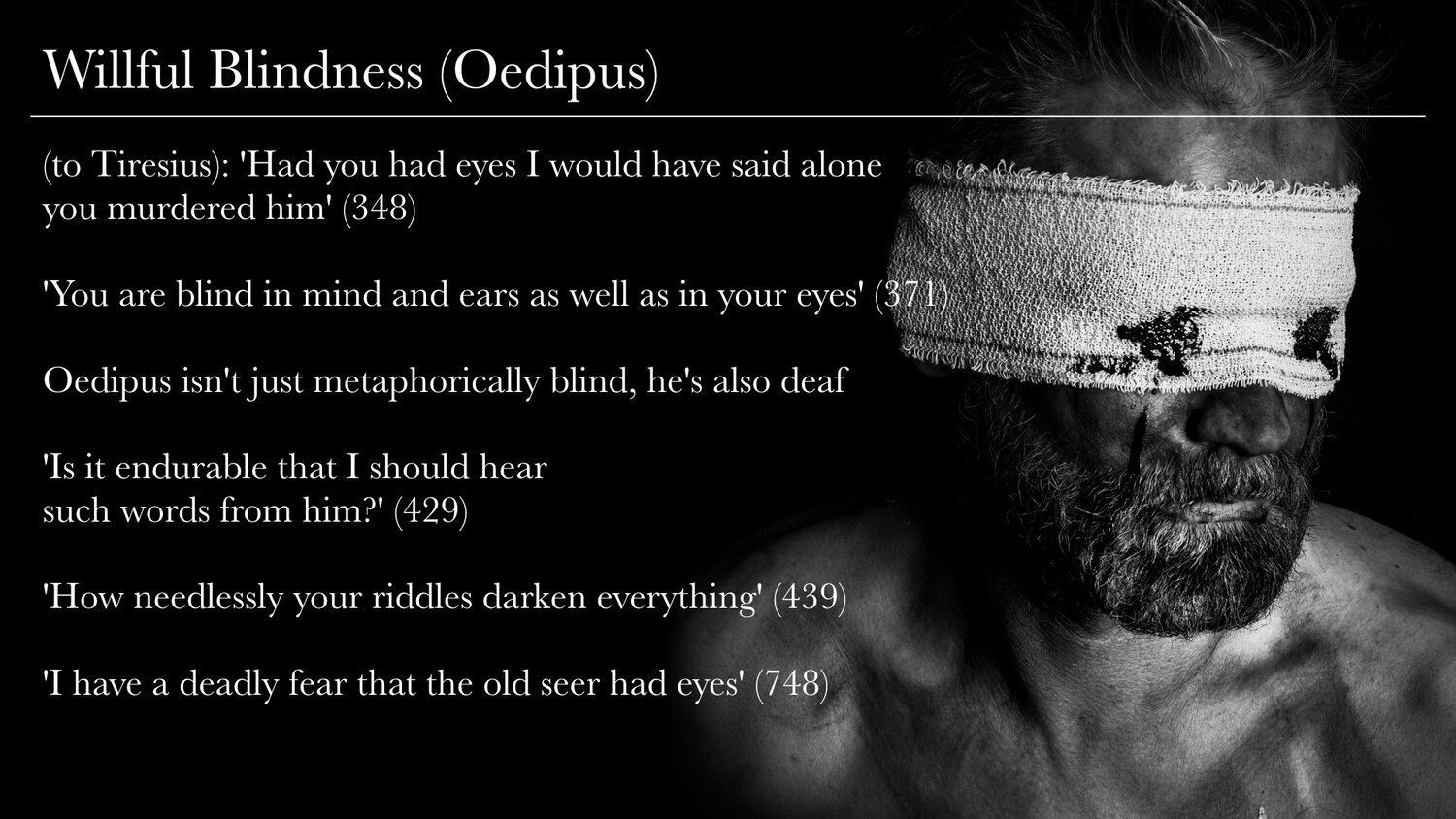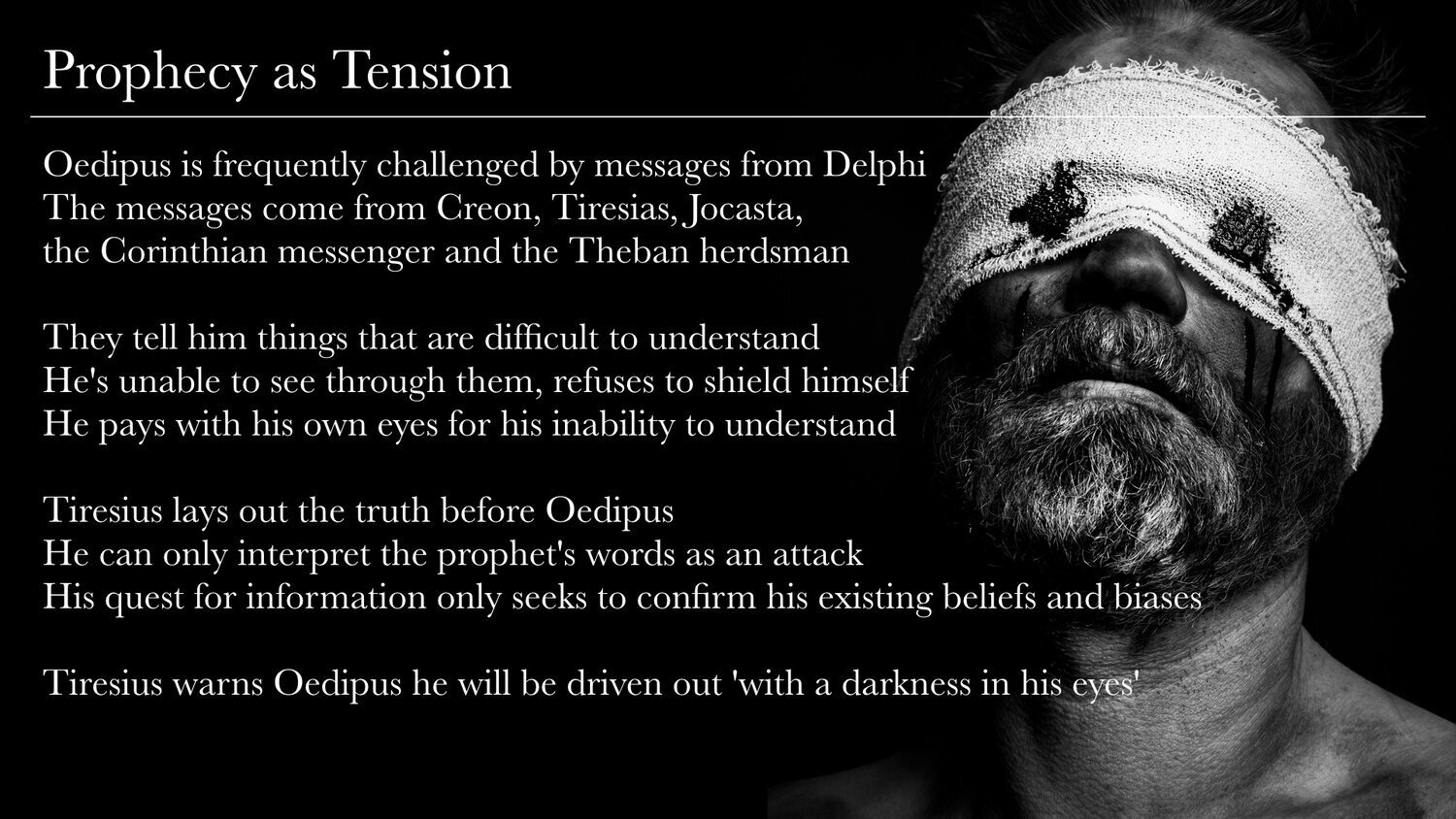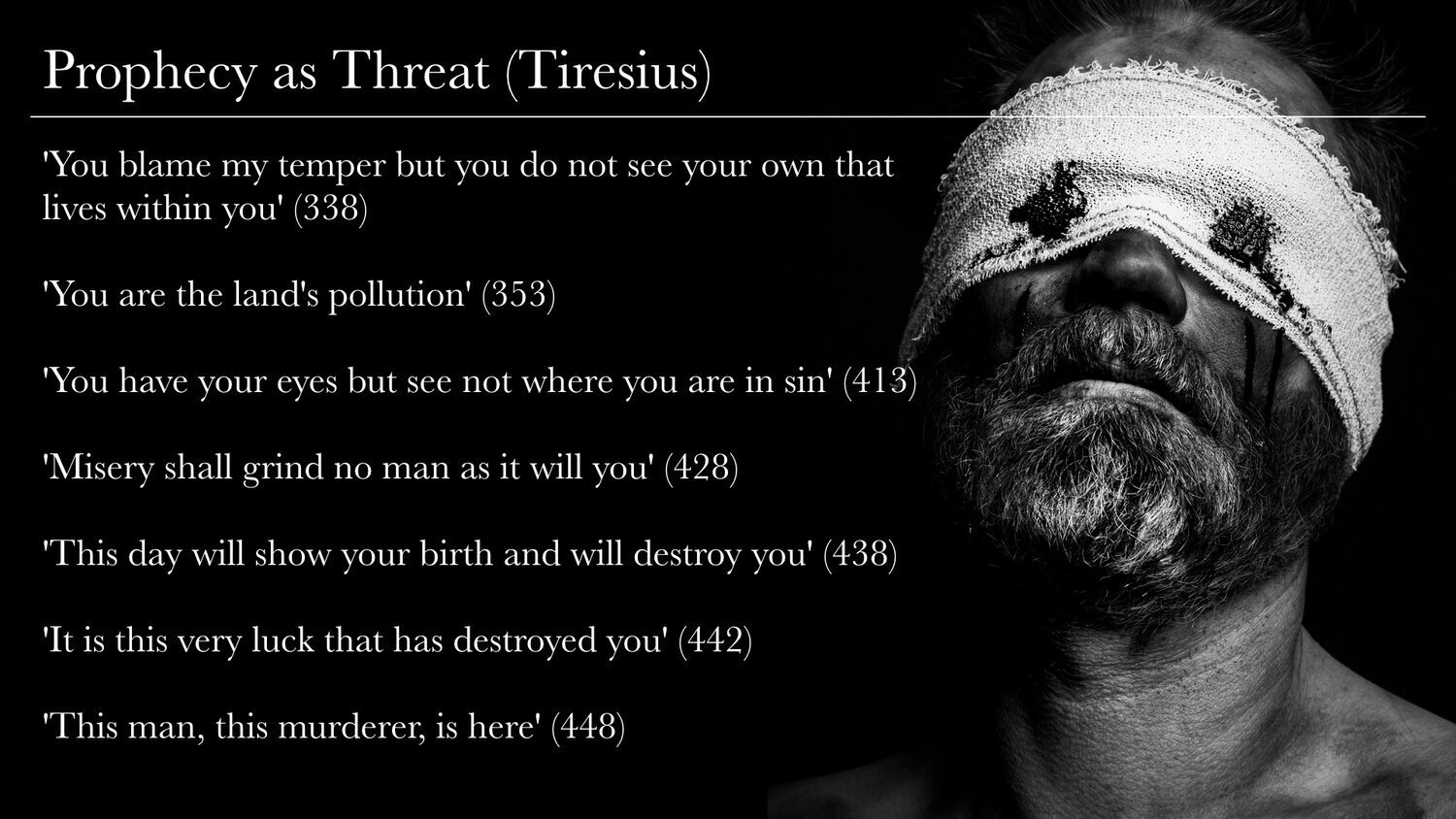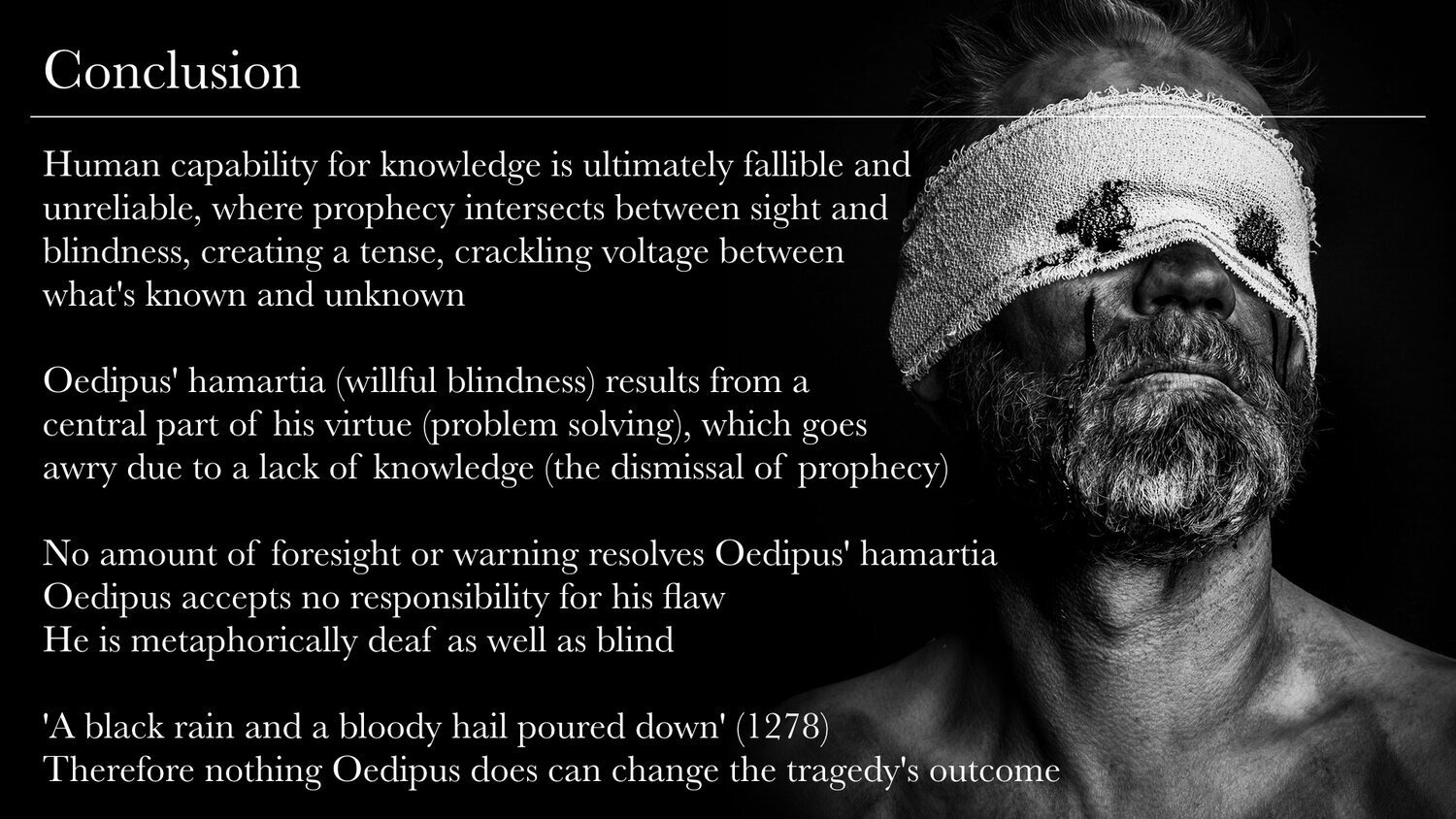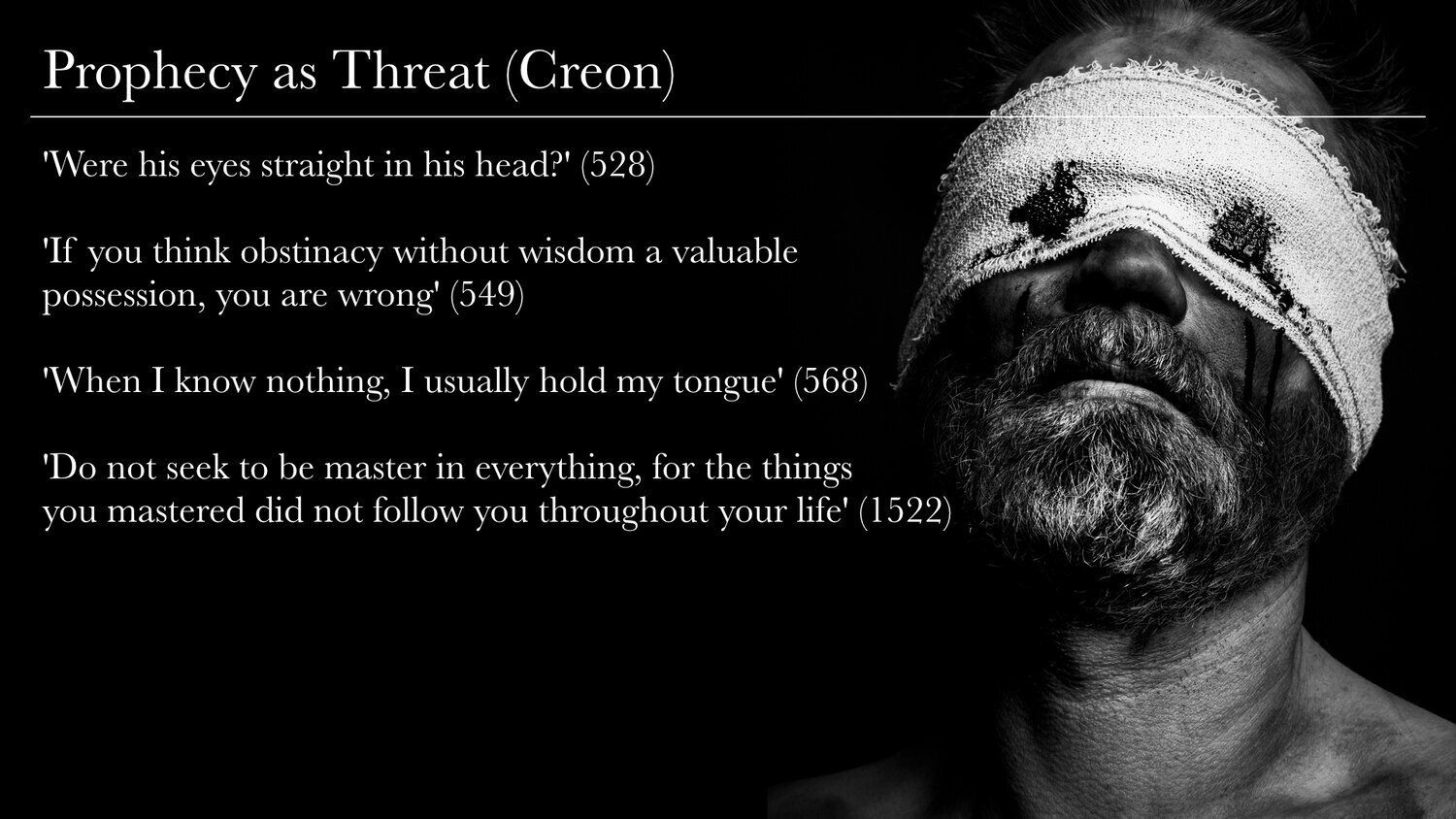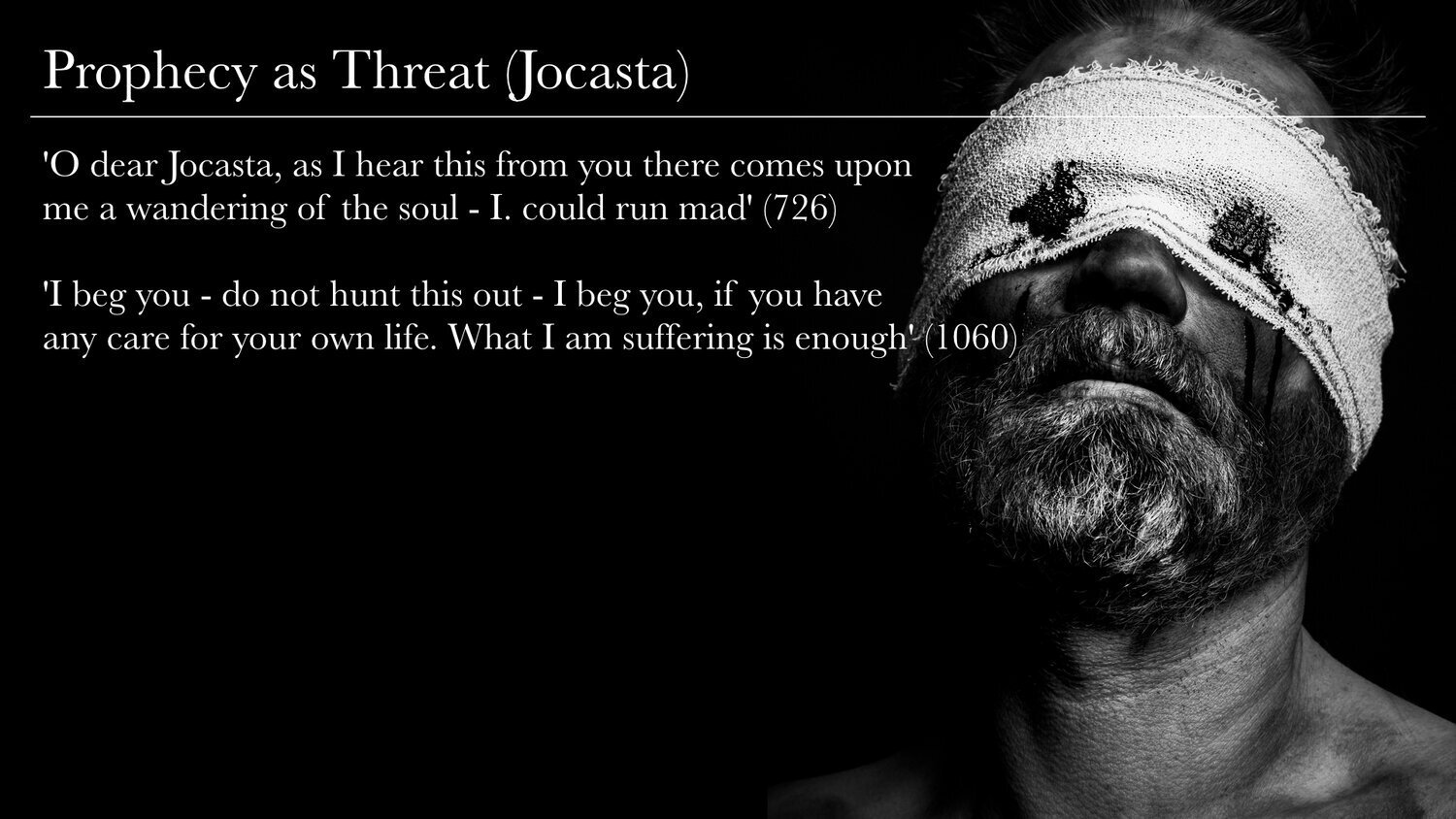
CLSC100:
Greek & Roman Mythology
Functionalist Reading Response: Decisiveness and Action
While a functionalist reading of Telemachus’ journey into maturity outlines values of growth, responsibility and social awareness, it is the more powerful trait of turning decisiveness into action that legitimizes Telemachus’ social acceptance into manhood.
We see this when Homer repeatedly uses authority figures’ encouragement to follow the decisive example of Orestes. Athena urges him to leave his childhood behind when she advises ‘You are no longer just a little boy. You surely heard how everybody praised Orestes when he killed the man who killed his famous father’ (The Odyssey, 1.296-300).
This advice also comes from Nestor (The Odyssey, 3.253-316), following a retelling of Orestes’ decisive actions in the retribution-filled murder of his mother, and concludes with the advice to ‘not stay away too long, dear boy, when those proud suitors lurk inside your house’ (The Odyssey, 3.313-314). Nestor is telling Telemachus to act now, and not be afraid of violence.
Telemachus must move swiftly, with force, and not be afraid of his own anger. To exhibit behavior worthy of a mature heir to the throne, to be an andra, he must cast aside the trappings of boyhood, and act with decisive confidence and purpose in removing the suitors.
Only when he does this will he be able to distance himself from the behaviors of his youth, and truly grow. Telemachus’ path is modeled upon Orestes’, and the advice given to him legitimates the cultural norm of decisive action being the gateway to social respect and personal maturity.
Structuralist Reading: The Example & The Exemplified
In lines 1-104 of Hesiod’s Theogony we see a tense structuralist relationship between the enduring and ephemeral nature of man’s praise of the gods. In contrast, lines 1-29 of The Homeric Hymn to Apollo are concerned with an internal reconciliation of threat and peace, also as a path towards a closer relationship with the immortals. Read together as warnings for how to lead a virtuous life, both offer alternatives for how best to honor the gods, and present a conflict between the example and the exemplified. Which path we choose to follow in our servitude as humans introduces a tension we must resolve ourselves.
In Hesiod’s Theogony, the relationship between the enduring and the ephemeral is framed as a warning in the form of a ‘holy gift to men’ from the muses (Theogony, 95), who remind us that humans are inherently temporal and fallible in thought and behavior. They fix in us the god-like enduring importance of legacy, permanence, and prudence. They reinforce the virtuous immortality of the gods, and their distinct otherness from us. The conflict is in man’s perpetual need for correction, where the muses, channeled through Hesiod, help to keep us on the virtuous path through guidance, advice and ‘the ordinances and the good ways of all the immortals’ (Theogony, 65). The message of the muses offers that the best way to lead a less ephemeral life is to become more virtuous, to follow the good ways, but it is the oral tradition in Hesiod itself that is trying to help us understand how to transcend our own mortality. Through poetry itself he is attempting to transform the temporal into the enduring.
Whereas the muses sit in the intersection between the gods and Hesiod, it is Hesiod who is attempting to transcend the impermanence of man. It is he who has special access to the permanence of the gods, and he who is trying to claim something enduring with his poetry. As the mediator for what the muses are saying, it is explicitly Hesiod that becomes the figure of tension between the enduring and ephemeral nature of how best to lead a life of virtue, and it is the often violent nature of Hesiod’s later interpretations of what he hears through the muses which propels the poem forward.
In contrast, The Homeric Hymn to Apollo offers us a different, more cautious and challenging model of servitude. As the paragon of all beings, ‘born to be the lord of mortals’ (The Homeric Hymn to Apollo, 29), he exemplifies the model of majesty to which all humans should aspire. Just as Hesiod sits as a fulcrum between the binary elements of the enduring and the ephemeral, Apollo himself sits at the intersection of threat and peace. The Homeric Hymn helps us understand that this threat is not only to us but also to the gods, and specifically Zeus, where ‘all but one shake while he is striding towards them’ (The Homeric Hymn to Apollo, 3). Who is the ‘one’ here? Why don’t we hear ‘all but Zeus?’ The one at peace, not shaking here isn’t Zeus, but Apollo himself. All are shaking except him. Only he is able to reconcile fear and calm, threat and peace, and as humans we are invited to follow his example.
The reading of The Homeric Hymn to Apollo is divided neatly into two halves, leading towards an inevitable binary. The first is concerned with weaponry, technology, and power. It is here where we experience thunder, glittering bows and the gods rising from their seats. The second concerns the peace and majesty of the natural world. In contrast it’s here we enjoy the fertile mainland, the towering headlands and beaches that lean towards the sea. Bridging the gap between these two structures is the birth of Apollo. ‘How can I make a song from all your glory?’ (The Homeric Hymn to Apollo, 19) asks the author. A structuralist reading poses the same challenge. How might we reconcile the tension between the fear of violence and the glory of nature? This tension resolves itself in the hymn’s advice that in order to lead a virtuous life in service of the gods, men must follow Apollo’s example in being able to reconcile the threat and violence of life with a mastery of all around them. These come into direct conflict with each other in Apollo, but his example is to perform regulation and domination of both.
Structuralist readings of both texts conclude that Hesiod’s Theogony offers a clearer binary definition than The Homeric Hymn to Apollo due to the more nuanced relationships between the gods, the muses, the role of Hesiod, and ourselves as the audience experiencing an oral tradition. Apollo as a fulcrum around which to develop a structuralist reading is more challenging as he is a less binary, more networked figure, with the main structuralist device being anchored by the equal distribution of two distinct themes, with Apollo’s birth providing a more literal, distinct bridge between the two thoughts. The frustrations of this approach can be resolved by considering both readings holistically as a single text, drawing structuralist conclusions together instead of individually.
Both poems serve as warnings to us, but through a holistic structuralist reading of both texts, also offer tactical, practical alternate paths for us to choose in our lives. As Hesiod, channeling the muses, is showing us a virtuous path through service, song and worship, Apollo shows us virtue through balancing the traits of threat and peace. Hesiod is the example, Apollo is the exemplified. One is resolved through the external, public display of praise, the other through the more challenging resolution of internal struggle. One path is social, the other is psychological. We must decide which is the best and most efficient path in bringing ourselves closer towards an immortal relationship. How we choose to reconcile these is the question before us as humans.
Epimethean Response: The Demise of Odysseus' Crew
Q: To what extent is Odysseus to blame for his crew's demise?
A: Methodology
Determine every ‘moment of responsibility’ in books 9-12
Assign a ‘responsibility score’ to each moment
Understand the differences between what Odysseus is responsible for, and what is out of his control
Understand where the grey areas around his decision making are, and assign responsibility scores
Total scores
Understand the arc of holistic responsibility, but also break out how his responsibility changes in each book
Explore a structuralist interpretation of the text around the theme of responsibility and accountability, and especially where there is conflict between the two that propels the story forward.
Conclusions
Odysseus is less responsible overall for the demise of his men. However, he is not without blame in specific situations.
Specifically, Odysseus’ taunting of Polyphemus and the calling down of the curse with Poseidon sets in motion a sequence of events that ultimately results in the entire crew being killed. In terms of overall responsibility for this inflection moment, Odysseus is entirely responsible.
The crew are responsible for their own demise specifically in the incidents with The Cicones, Elpenor’s death and The Cattle of the Sun.
Odysseus’ responsibilities are questionable in the death (and non-burial) of Elpenor, his lack of leadership on the Island of The Laestrygonians, his willingness to be forced into the choice between the Scylla and the Charybdis, and his initial self-centered behavior on the Island of Circe.
His leadership and sense of responsibility is evident during the incidents with the Cyclops (to some extent) and the Sirens.
In contrasting the traits of responsibility and accountability, these are in conflict for Odysseus specifically in the situation of taunting Polyphemus, his non-burial of Elpenor, his sleeping during his men’s raids upon the cattle of the sun, and his willingness to accept the binary choices between the Scylla and Charybdis. These are the elements that propel the myth forward, but also ultimately cause the demise of Odysseus’ crew.
Christina’s Response (6.6.2021):
I believe that the majority of Odysseus' responsibility lies in his role as leader and decision-maker:
In the case of the Cicones, it is true that the men did not want to leave, however, after they were blown off course, Odysseus says, "I sacked the town and killed the men." (9.41-42) It is only after they had reeked havoc on the town that he told the men they should run away. As the decision-maker I would hold him more responsible for the demise of the men lost to the Cicones. He is the reason they didn't just sail on to Ithaca and avoid the skirmish entirely.
In the case of the Lotus-Eaters he says, "Then I chose two men... to go and scout." (9.87) Here again as the decision-maker he sends his men into a situation not knowing what they will encounter or what level of danger he is putting them in. Only then do they come across the temptation of the Lotus flowers and he has to drag them away.
And in the case of the lost winds of Aeolus, I would hold him more responsible because he says he was tired because he "had been doing all the steering." (10.30) From this comment it could be deduced that he did not ask for enough help from his men. By trying to do too much himself he put himself and therefore his men in a compromised position and was not available to assuage their fears when paranoia set in.
Thoughts:
To what extent is the demise of his crew a failing of his leadership and decision making?
Agreed on The Cicones that he is initially responsible for the sacking of the town, but not what happens later.
With the Lotus Eaters, he’s not entirely to blame here, as sending out a search party is what we’d expect from a leader
His tiredness with the Aeolean winds is similar to the incident with the Cattle of the Sun
Is it an expectation we can have that a leader is indefatigable?
I’d argue yes. And if we believe that it is, then Odysseus holds more culpability here
Homer names very few of the crew, and they are treated in the story as expendable
The ones that are named are reckless, drunk, or refuse orders
Even though Odysseus is often placing his men in danger and having to use his own cunning to get out of those situations, many of those situations are due to poor decisions in the first place.
So even when we don’t place blame on him for the events as they unfold, there is usually an original source of blame we can attach to every event.
Cicones:
Odysseus: 'Then I said we must run away. Those fools refused to listen. They were drinking wine excessively, and killing sheep and cattle along the beach.' (9.44)
Origin: "I sacked the town and killed the men." (9.41-42)
Lotus Eaters:
Odysseus: 'As they ate it, they lost the will to come back and bring news to me' (9.93)
Origin: "Then I chose two men... to go and scout." (9.87)
Cyclops:
Odysseus: 'The gods ignored my offering, and planned to ruin all of my ships and all my loyal men.' (9.554)
Origin: Odysseus taunts the Cyclops, who almost destroys their ship with a rock, his crew begs him to stop
Aeolean Winds:
Demise Trigger: 'We should look inside the bag, to see how much is in there - how much silver, how much gold.' (10.44)
Origin: Odysseus says he was tired because he "had been doing all the steering." (10.30)
Christina’s Response (6.8.2021):
One of the things that did stand out to me though was something that Odysseus said after they raided the Cicones.
“We... shared their riches equally among us.” (9.44)
Fast forward to the incident of Aeolus and the men are complaining that he gets everything. (10.34-45) I could be reading too much into this, but it seems that somewhere along the way there was a break down in trust.
Could this be attributed to a lacking in Odysseus’ leadership? If the men trusted him, wouldn’t they have asked him rather than waiting to go through his bag when he was asleep?
I’ve added in a point to reflect the thought here around an overall lack of trust from his men, which causes them to be reckless in several instances. Again, while the specific triggers that lead to their demise might not be directly caused by Odysseus, he consistently places his men in situations where they do this to themselves.
The other thing that we haven’t accounted for yet in the calculations is my original point that Tiresias and Circe both said that if he returned home alone then it would be because he had destroyed his men. Do you think this brings more weight to bear on Odysseus in terms of responsibility since the prophet and the goddess both warned him about this?
I agree that there’s a point of coverage here that’s important to include, and this is more pronounced with Tiresias (+1) than it is with Circe (+0.5). I’ve included this in the notes for both instances, but for Book 11 in The Underworld as Tiresias tells Odysseus 'If you hurt these cows, I see disaster for your ship and for your men. If you yourself escape, you will come home late and exhausted, in a stranger's boat, having destroyed your men.' (11.113) - Odysseus does not heed this warning.
And finally, whose idea was it for the men to dock their ships in the harbor near the Laestrygonians? Odysseus says
"I was the only one who chose to moor my ship outside the harbor." (9.94)
Everyone else "harbored their ships inside, crammed close together." (9.93) Did he know something he wasn't telling his men?
While this is more speculative, the implication is that Odysseus knows something his crew doesn’t, and it’s a failure of leadership for him not do get the crew to do what he himself does to protect his ship.
We conclude that through quantitative analysis of each individual incident that triggers the death of Odysseus’ crew members, that Odysseus is more to blame than not for the demise of his crew.
Featured Writer Response: The Gates of Horn & Ivory
While there are numerous instances where Vergil draws on Homer during Aeneas’ journey to the underworld in Book 6 of The Aeneid, the most curious deviation is the nature of his departure back into the world of the living through the gates of ivory. Vergil borrows the image of the gates of sleep from Penelope’s dream in The Odyssey, where she recounts to Odysseus ‘There are two gates of dreams; one pair is made of horn and one of ivory. The dreams from ivory are full of trickery; their stories turn out false. The ones that come through polished horn come true.’ (The Odyssey, 19.566-569)
Deiphobe leads Aeneus and the Sibyl to the gates of sleep (The Aeneid, 6.1127-1133), but why would Vergil have Aeneus depart through the gates of false dreams and trickery? Homer uses the gates as a framework for Penelope to test Odysseus, and his subsequent association with the gates of horn foreshadows his setting things right in his house. Vergil uses Aeneus’ association with the gates of ivory, the gates of false dreams, to remind us that Aeneus, as a living, embodied being, is a transgressor in the underworld, and his journey to found Rome is itself, a false dream.
Vergil also nods to the audience that what’s been recounted in the underworld should not be taken as truth, that the ivory gates are those through which ‘Manes send false dreams to earth’ (The Aeneid, 6.1130). That Vergil’s epic descriptions of future Roman greatness, which a contemporary audience would have known to be well celebrated, are themselves a fiction, a construct. That empire itself is a false dream of vanity. That the heroes of empire, listed out through the license gifted to them in mythology, and here represented by Aeneus’ dream-like katabasis in the underworld, are inevitably, dangerously transformed into falsehoods.
So which framework do we believe? Penelope’s or Deiphobe’s? Homer’s or Vergil’s? Whereas Homer uses the ivory gates to reinforce a cautious intimacy, Vergil uses them to warn us of the hubris of empire. Homer uses them to develop xenia-driven psychological safety between a couple, Vergil uses them to signal a hamartia-based national risk.
Inherent in Vergil’s deviation from Homer is an illustration that captures a fundamental difference between what it is to be Greek, and what it means to be Roman.
Promethean Response: Sight & Blindness (Structuralist Readings in Oedipus Rex)
Final Paper: Oh Beautiful Son, What Have You Done?
Sons are the fulcrum around which mythology orients itself and makes sense of the world. They act as suppressors, releasers, avengers, miasmic pharmakons, polytropic navigators and national founders. They perform as a literary device that propels epic, tragic and historic narrative forward. They serve to provide often violent resolution, and exemplify ideals of cultural identity. They bear the scars of conquest, self-harm, betrayal, parricide and psychological damage, with their transition from son to father often involving or reconciling loss. Sometimes that loss is cathartic and healing, often it is violent and self-destructive, 'This day will show your birth and will destroy you' (Oedipus Rex, 438). The threshold that separates son and father is lavishly adorned with revenge, emotional abuse, sadness and death.
Being a son is the most direct reflection of myth itself. A son’s actions ask what it is to be human, to make your way between being born, dying, and what lies forever beyond.
Depictions of sons in myth range from the cosmological and heavenly, to the uncomfortably intimate, and culminate in emergent constructs of the national. But the framework of genealogy acts as a great equalizer across cultures, transcending relationships between Gods and men. Mortal sons often exhibit immortal, enduring, heroic traits that transcend lineage, but they are not without their inherent, fatal flaws. The sons who represent the crackling intersections between Gods and men become mythologized and father great nations.
We often think of one of the original sons, Kronos, as the child devouring father, forever embroiled in theomachy. First with his parents, and then with his children. In making sense of the heavens through the framework of a son’s genealogy, Hesiod draws connections between abstract forces, individual divinities, and the fatalistic mechanics of the universe.
But if we explicitly read Kronos’ actions as a son, independently of those as a father, it is possible to mount a defense of Gaia’s son. Ouranos, in suppressing creative production in Gaia, attempts to protect the world from what may result in being released from within her. He is actively, deliberately, holding back human progress, and anthropomorphosizes the Freudian repression barrier, underneath which percolates the increasing pressure of unsanctioned, untethered creative pursuit. As this pressure builds, the illicit desire to produce causes Gaia to enlist Kronos to release creativity into the world, and not just burst the barrier enforced nightly by Ouranos, but to neuter and destroy it completely. Kronos complies with extreme prejudice, "Mother, I would undertake this task and accomplish it - I am not afraid of our unspeakable father." (Theogony, 173-174)
Kronos, in castrating his father, removes that barrier as an act of generosity to the world, at the explicit request of his mother. But in doing so, he inadvertently unleashes the creative ills of “hateful doom and dark fate and death” (Theogony, 211), painful misery and the wrathful blood justice of the Eumenides. Ouranos had been suppressing these illicit forces, and shielding the world from the evils contained within Gaia. Kronos’ act of maternal protection also sets in motion the events that lead to his suppressed devouring of the fatalistic threat from his own sons, where Gaia’s affiliations grow increasingly inconsistent. Instead of repressed creativity as an internal female construct, it’s external patricidal threat. Hesiod aligns with a son, Zeus, and demonizes Kronos for his actions, "After them the youngest was born, crooked-schemer Kronos, most fearsome of children, who loathed his lusty father" (Theogony 136-138). But if we isolate Kronos the son from Kronos the father, we understand that his actions towards the universe are predicated on protection, generosity and the gift of creativity to the world.
Moving from the cosmic to the intimate, sons also operate along a structuralist spectrum of infection and antibody. We see the former most acutely in Oedipus, the miasmic pollution inside of Thebes. The savior turned cancer, who believes he is the promise of cure, but who is precluded from true cultural vaccination through his own hamartia, willful blindness. His confused interpretation of what it means to be a son, indeed whose son he even is, leads to patricide, incest, and the self-harm, suicide-stricken downfall that becomes him. "He shall be proved father and brother both to his own children in his house; to her that gave him birth, a son and husband both" (Oedipus Rex 458-460). He is abandoned as a son, recovered as a son, embraced as a son and undone as a son. The scars of his abandonment as an unwanted son cripple him emotionally and physically, and are an eternal reminder of who he is not. "Your ankles should be witnesses” says the messenger. “Why do you speak of that old pain? … My swaddling clothes brought me a rare disgrace” (Oedipus Rex, 1032-1033, 1035). Oedipus does indeed cleanse Thebes, but of himself and at catastrophic personal cost. The loss of his eyesight, his station in life, and both his wife and mother.
In contrast, Orestes is a son who acts as an inter-generational pharmakon inside the miasmic House of Atreus. The origin of which was itself a transgression against a son, Pelops. If Oedipus is the savior turned cancer, then Orestes is the avenger turned cure. He commits the blood crime of matricide, but it’s an act of transfusion. Like Gaia encouraging Kronos, Apollo guides Orestes to not only kill Aegisthus, but to exorcise the mariticidal actions of Clytemnestra. Orestes, like Oedipus, cleanses his house, "I have been beaten and been taught, I understand the many rules of absolution" (The Eumenides, 276-277), but without personal loss, and with the gains of curing Athens of the traditional means of justice predicated on wrath against blood crimes. This decisive blueprint for sons serves as the actionable guidance Telemachus receives from Athena and Nestor on his path to maturity in The Odyssey.
If Oedipus serves as pollution, then Orestes balances a structuralist binary as medicament. Oedipus is the son as virus, Orestes is the son as vaccine. Where they intersect and propel their respective narratives forward is through their discovery and understanding of what it means to be a son, what it means to commit but also wash away a blood crime, "the stain of blood dulls now and fades upon my hand. My blot of matricide is being washed away” (The Eumenides, 280-281), and ultimately, how to cleanse their houses and resolve their family’s unrest.
Sons are also used as a functionalist device for constructing and legitimating ideas of national identity in Homer and Vergil. Homer uses the nostos of the Son of Ithaca, Odysseus, to make sense of the world through the definition of lineage during his journey to the Underworld in Book 11 of The Odyssey. As Odysseus meets the heroes and protagonists of the past, they are defined by their lineage, whose son they are. “I saw Tityus, the son of Gaia, stretched out nine miles” (The Odyssey, 11.577-578). This deep, mythic orientation towards the past legitimates a national concept of Greekness predicated upon legacy, and power passing from fathers to sons over time but looking back historically. Achilles, now long dead, enquires after his son’s power and standing in the world, "Tell me about my son. Do you have news? Did he march off to war to be a leader?" (The Odyssey 11.492-493). Odysseus confirms the fearlessness and rage of Neoptolemus, and "Achilles’ ghost took great swift-footed strides across the fields of asphodel, delighted to have heard about the glorious prowess of his son” (The Odyssey, 11.538-541). A son’s legacy fulfilled.
Like Oedipus, for Odysseus this nostalgia is physically manifest in the scar he uses to identify himself to Laertes, Penelope and Eurycleia. It is an essential, painful part of his past, but also defines who he is as a son, and grandson. It’s a son’s pain as memory, but also trophy. It is also sons (of Autolycus) who save Odysseus’ life after he is gored by the boar who gifts him the scar. Linguistically compounding the homecoming elements of nostos, with the pain of algos, nostalgia doesn’t just describe Odysseus’ journey back to Ithaca, but how closely it’s interwoven with loss. He arrives home having experienced the loss of his crew, the loss of his home, and his loss of place in the world. He spends the remainder of the epic reclaiming his identity, and the scar is a critical component of his return.
But if lineage in Homer legitimates the transfer of power from father to son in Greek national identity, Vergil shows us another path of son as national founder in Aeneus.
If Odysseus’s journey to the Underworld helps us make sense of the world through sons as history, Aeneus’s time there legitimates a concept of Roman national identity based on predetermination and fate. Aeneus is shown the destiny of his future lineage and the birth of Rome by his father, Anchises, so beginning his transition from Son of Troy to Father Aeneus of Rome, "Hear now what fame henceforward shall attend the Dardan race … This will I show you, and your own fates foretell" (The Aeneid, 6.944-945, 6.948). His future is laid out ahead of him, where he has sons of his own, who in turn become the nation’s fathers themselves. His future is tightly intertwined with the future of Rome, with a direct path to “Augustus Caesar, of a race divine. The golden age in Latium he shall bring again" (The Aeneid, 6.990-991). Vergil, like Homer, is legitimating the role of hereditary order and the inheritance of power in Roman culture. It passes through and between sons.
Whereas The Odyssey legitimates a sense of Greek identity based on legacy, The Aeneid looks forward and legitimates cultural identity propelled by destiny. The fulcrum of both approaches tilts between the parallel nostoi of the Son of Ithaca and the eventual Father of Rome.
If Kronos represents the cosmological release of creativity and production through violence towards his father, Oedipus and Orestes illustrate a strong binary of virus and vaccine based on their respective understandings of their duty as sons, with Odysseus and Aeneus making sense of what it means to be a son of a nation, infused with differing concepts of lineage through legacy and destiny.
In making their way between being born and eternity in the underworld, mythological sons represent physical and psychological protection, but also offer extreme danger. "Easy the way down to Avernus; night and day the gates of Dis stand open" (The Aeneid, 6.161-163). But all of them exemplify the traits of what it means to be a hero. They suffer, they endure, and their divergent paths towards fatherhood, either personal, cultural or national, are hard won through lived experience. To thrive as a son is to bear the scars of the past, to embrace the destiny of the future, and ultimately to understand and anthropomorphize the algos of what it is to be mortal.






